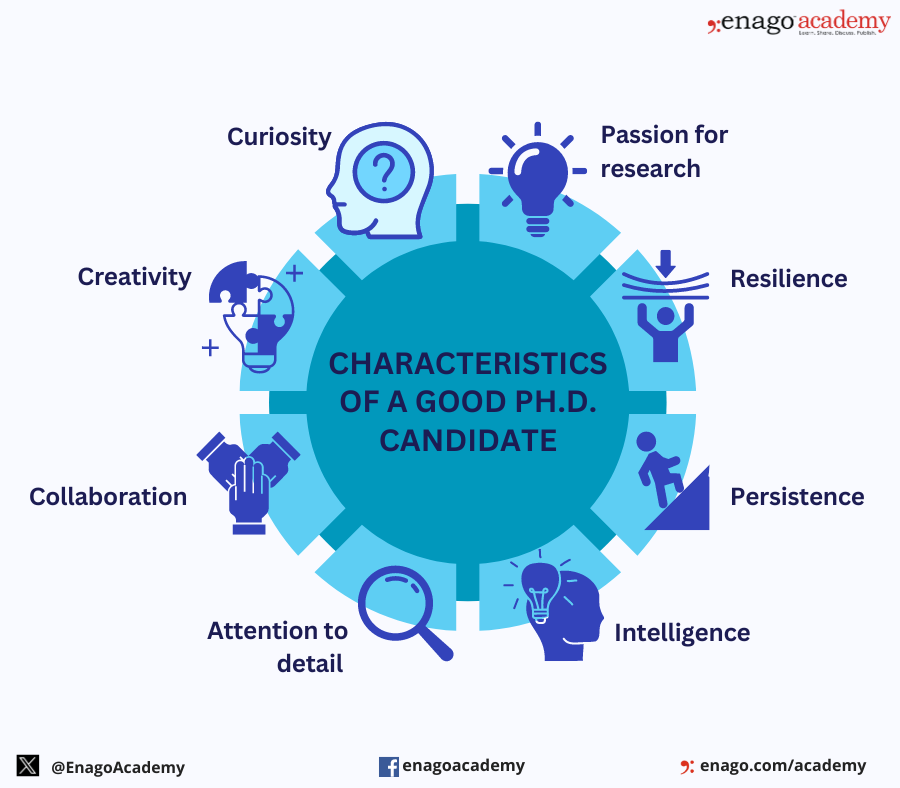Confronting the Bias of High IQ in Ph.D. Journey
The most prevalent assumption about a Ph.D. is that it requires exceptional intelligence, but emerging evidence challenges the notion that success at the doctoral level depends only on conventional measures of intelligence quotient (IQ). The reality paints a more diverse picture of the qualities required to pursue this degree.
With Ph.D. candidates coming forth and sharing their experiences, it has become clear that grades, often considered as the measure of intelligence, do not govern the success during the Ph.D. Although this path requires certain level of intellect, there is more to the list. Beyond the limits of known, it is curiosity and determination that will propel you forward in unknown terrains. Scholarly pursuit is a research journey and not an intelligence test. It is more about the motivation to keep pushing through the challenges than the narrow definition of ‘smartness’. A nuanced mix of characteristics ensures a steady pace in academic exploration and helps to bridge the gap between theory and practical.

Traditionally, IQ was understood synonymous to cognitive abilities, but further research has revealed diverse range of intelligences as proposed by Howard Gardner in his
theory of Multiple Intelligences.
According to him, intelligence is not a unit entity but encompasses various distinct types. Logical-mathematical intelligence, linguistic intelligence, visual-spatial intelligence, bodily-kinesthetic intelligence, musical intelligence, interpersonal intelligence, intrapersonal intelligence, naturalistic intelligence, and even existential intelligence all contribute to an individual’s cognitive capabilities. Standardizing only one form of intellect compromises the richness and diversity that human brain offers. Even with criticism that this theory received, it still supplements a more nuanced understanding of the term IQ.
Ph.D. candidates can benefit from a wide range of cognitive strengths, which the theory of multiple intelligences supports. Thus, the rigid association between high IQ and Ph.D. success that harbors in the minds of many needs re-evaluation.
 Traditionally, IQ was understood synonymous to cognitive abilities, but further research has revealed diverse range of intelligences as proposed by Howard Gardner in his theory of Multiple Intelligences.
According to him, intelligence is not a unit entity but encompasses various distinct types. Logical-mathematical intelligence, linguistic intelligence, visual-spatial intelligence, bodily-kinesthetic intelligence, musical intelligence, interpersonal intelligence, intrapersonal intelligence, naturalistic intelligence, and even existential intelligence all contribute to an individual’s cognitive capabilities. Standardizing only one form of intellect compromises the richness and diversity that human brain offers. Even with criticism that this theory received, it still supplements a more nuanced understanding of the term IQ.
Ph.D. candidates can benefit from a wide range of cognitive strengths, which the theory of multiple intelligences supports. Thus, the rigid association between high IQ and Ph.D. success that harbors in the minds of many needs re-evaluation.
Traditionally, IQ was understood synonymous to cognitive abilities, but further research has revealed diverse range of intelligences as proposed by Howard Gardner in his theory of Multiple Intelligences.
According to him, intelligence is not a unit entity but encompasses various distinct types. Logical-mathematical intelligence, linguistic intelligence, visual-spatial intelligence, bodily-kinesthetic intelligence, musical intelligence, interpersonal intelligence, intrapersonal intelligence, naturalistic intelligence, and even existential intelligence all contribute to an individual’s cognitive capabilities. Standardizing only one form of intellect compromises the richness and diversity that human brain offers. Even with criticism that this theory received, it still supplements a more nuanced understanding of the term IQ.
Ph.D. candidates can benefit from a wide range of cognitive strengths, which the theory of multiple intelligences supports. Thus, the rigid association between high IQ and Ph.D. success that harbors in the minds of many needs re-evaluation.
